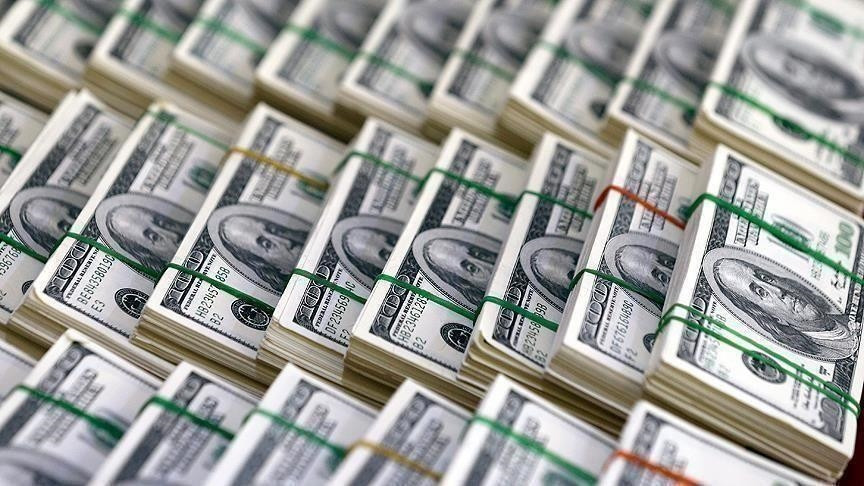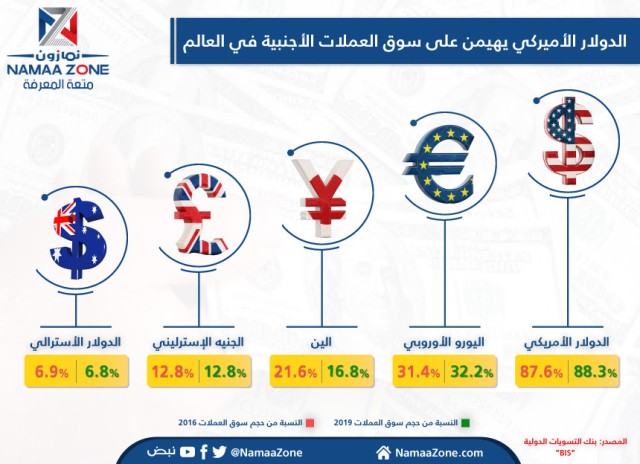Global foreign exchange reserves have fallen at the fastest rate ever, as central banks intervene to prop up their currencies.
According to Arab Net, data compiled by Bloomberg showed reserves decreased by about $1 trillion, or 7.8%, this year to $12 trillion, the largest drop since it began compiling data in 2003.
Much of the decline is due to valuation changes. With the dollar jumping to its highest levels in two decades against other reserve currencies, such as the euro and the yen, the dollar has thus reduced the value of these banks' dollar holdings. But dwindling reserves also reflect pressure in the currency market that is forcing an increasing number of central banks to turn to their currency assets to stave off a decline.
For example, India's reserves declined by $96 billion this year to $538 billion. The country's central bank said asset valuation changes accounted for 67 percent of the decline in reserves during the fiscal year beginning in April, meaning the rest came from intervention to support the currency. The rupee has lost about 9% against the dollar this year and hit a record low last month.
Japan spent about $20 billion in September to slow the yen's decline in its first currency support intervention since 1998. This would represent about 19% of the reserve loss this year. Currency intervention in the Czech Republic has helped reduce reserves there by 19% since February.
While the scale of the decline is unusual, the practice of using reserves to defend currencies is nothing new. Central banks buy dollars and increase their stock of currencies to slow the appreciation of a currency when foreign capital flows. In bad times, they rely on reserves to cushion the blow from capital flight.
Some countries, particularly in Asia, could go both ways, to quell weakness, said Alan Ruskin, chief international strategist at Deutsche Bank AG.
Most central banks still have enough strength to continue interventions, if they so choose, as India's foreign reserves are still 49% higher than 2017 levels, enough to pay off 9 months of imports.
Central banks including Indonesia, Malaysia, China and Thailand will release their latest foreign reserves data on Friday.
But for others, they deplete quickly. Data compiled by Bloomberg shows that after a 42% drop this year, Pakistan's $14 billion in reserves are not enough to cover 3 months of imports.









































